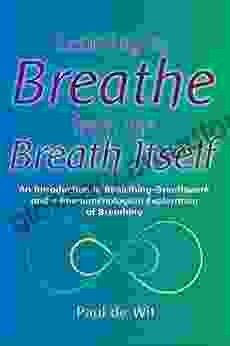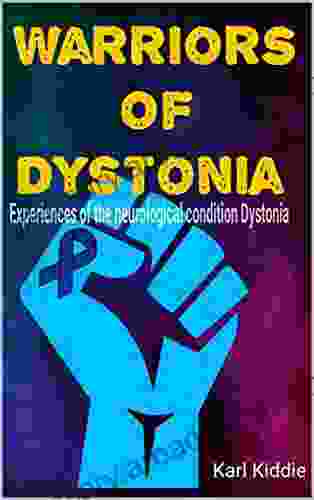Master Phrasal Verbs and Ace the IELTS Speaking Test: Your Essential Guide to Band 9

Phrasal verbs are an essential part of the English language, and they are heavily used in the IELTS Speaking test. In fact, research shows that candidates who use a wide range of phrasal verbs in their responses tend to score higher bands. This article will provide you with a comprehensive guide to phrasal verbs for the IELTS Speaking test, including a list of commonly used verbs, how to use them in context, and tips for effective usage.
What are Phrasal Verbs?
Phrasal verbs are combinations of a verb and a preposition or adverb that create a new meaning that is different from the original verb. For example, the verb "go" can be combined with the preposition "out" to create the phrasal verb "go out," which means to leave a place.
4 out of 5
| Language | : | English |
| File size | : | 821 KB |
| Text-to-Speech | : | Enabled |
| Screen Reader | : | Supported |
| Enhanced typesetting | : | Enabled |
| Word Wise | : | Enabled |
| Print length | : | 108 pages |
| Lending | : | Enabled |
Phrasal verbs can be tricky to master, but they are essential for fluent English communication. By learning and using phrasal verbs correctly, you can improve your IELTS Speaking score and impress the examiner.
Commonly Used Phrasal Verbs for IELTS Speaking
The following is a list of commonly used phrasal verbs that you are likely to encounter in the IELTS Speaking test:
- Break down: to fail or stop working
- Carry out: to do or complete something
- Come up with: to think of an idea or solution
- Deal with: to handle or solve a problem
- Figure out: to understand or solve something
- Get along with: to have a good relationship with someone
- Get over: to recover from an illness or a difficult experience
- Give up: to stop trying
- Look after: to take care of someone or something
- Make up for: to compensate for something
- Put off: to delay something
- Run into: to meet someone by chance
- Take after: to resemble someone in appearance or character
- Turn down: to refuse something
- Turn up: to arrive or appear
How to Use Phrasal Verbs in Context
When using phrasal verbs in context, it is important to pay attention to the preposition or adverb that follows the verb. This will determine the meaning of the phrasal verb. For example, the phrasal verb "break down" can have different meanings depending on the preposition that follows it:
- Break down (with "into"): to divide something into smaller pieces
- Break down (with "on"): to collapse or fail
- Break down (with "over"): to become emotionally overwhelmed
It is also important to note that some phrasal verbs can be separable or inseparable. Separable phrasal verbs can be separated by an object, while inseparable phrasal verbs cannot. For example, the phrasal verb "look after" is separable, so you can say "I am looking after my child" or "I am looking my child after." However, the phrasal verb "get over" is inseparable, so you cannot say "I am getting my illness over."
Tips for Effective Usage of Phrasal Verbs
Here are some tips for effective usage of phrasal verbs in the IELTS Speaking test:
- Use phrasal verbs naturally. Don't try to cram too many phrasal verbs into your responses. Instead, use them naturally and appropriately.
- Use the correct preposition or adverb. Make sure you pay attention to the preposition or adverb that follows the verb, as this will determine the meaning of the phrasal verb.
- Use phrasal verbs in a variety of contexts. Don't just use the same phrasal verbs over and over again. Try to use a variety of phrasal verbs to show the examiner that you have a wide range of vocabulary.
- Practice using phrasal verbs in real-life situations. The best way to improve your usage of phrasal verbs is to practice using them in real-life situations. Talk to friends and family, watch English-language movies and TV shows, and read English-language books and articles.
Phrasal verbs are an essential part of the English language, and they are heavily used in the IELTS Speaking test. By learning and using phrasal verbs correctly, you can improve your IELTS Speaking score and impress the examiner.
This article has provided you with a comprehensive guide to phrasal verbs for the IELTS Speaking test, including a list of commonly used verbs, how to use them in context, and tips for effective usage. Follow these tips and you will be well on your way to success in the IELTS Speaking test.
4 out of 5
| Language | : | English |
| File size | : | 821 KB |
| Text-to-Speech | : | Enabled |
| Screen Reader | : | Supported |
| Enhanced typesetting | : | Enabled |
| Word Wise | : | Enabled |
| Print length | : | 108 pages |
| Lending | : | Enabled |
Do you want to contribute by writing guest posts on this blog?
Please contact us and send us a resume of previous articles that you have written.
 Book
Book Novel
Novel Page
Page Chapter
Chapter Text
Text Story
Story Genre
Genre Reader
Reader Library
Library Paperback
Paperback E-book
E-book Magazine
Magazine Newspaper
Newspaper Paragraph
Paragraph Sentence
Sentence Bookmark
Bookmark Shelf
Shelf Glossary
Glossary Bibliography
Bibliography Foreword
Foreword Preface
Preface Synopsis
Synopsis Annotation
Annotation Footnote
Footnote Manuscript
Manuscript Scroll
Scroll Codex
Codex Tome
Tome Bestseller
Bestseller Classics
Classics Library card
Library card Narrative
Narrative Biography
Biography Autobiography
Autobiography Memoir
Memoir Reference
Reference Encyclopedia
Encyclopedia George Bickham
George Bickham Frank E Burdett
Frank E Burdett Georgina Amma Tweneboah Sah
Georgina Amma Tweneboah Sah Gina Shaw
Gina Shaw Gilbert Held
Gilbert Held Rick Dolphijn
Rick Dolphijn Phil Vickery
Phil Vickery Franz Schulze
Franz Schulze Geoffrey Charles Emerson
Geoffrey Charles Emerson Vinod Joseph
Vinod Joseph George M Baer
George M Baer Randall Dale Chipkar
Randall Dale Chipkar Matthew P Binkewicz
Matthew P Binkewicz Mike German
Mike German G I Williamson
G I Williamson Rakesh Singh
Rakesh Singh Eliseo Pau
Eliseo Pau Meg Mateo Ilasco
Meg Mateo Ilasco S Albert Alexander
S Albert Alexander George A Bermann
George A Bermann
Light bulbAdvertise smarter! Our strategic ad space ensures maximum exposure. Reserve your spot today!

 Roberto BolañoLiterary Art in Digital Performance: Unlocking the Power of Technology in...
Roberto BolañoLiterary Art in Digital Performance: Unlocking the Power of Technology in...
 Joseph HellerBroadsword Calling Danny Boy: Watching Where Eagles Dare - The Ultimate Guide...
Joseph HellerBroadsword Calling Danny Boy: Watching Where Eagles Dare - The Ultimate Guide...
 Douglas FosterOur Theology, Piety, and Practice: A Comprehensive Exploration of Christian...
Douglas FosterOur Theology, Piety, and Practice: A Comprehensive Exploration of Christian... Herbert CoxFollow ·9.5k
Herbert CoxFollow ·9.5k Scott ParkerFollow ·16.6k
Scott ParkerFollow ·16.6k Darren BlairFollow ·9k
Darren BlairFollow ·9k Sam CarterFollow ·14.3k
Sam CarterFollow ·14.3k Harold BlairFollow ·18.4k
Harold BlairFollow ·18.4k Art MitchellFollow ·14.8k
Art MitchellFollow ·14.8k Dustin RichardsonFollow ·19.4k
Dustin RichardsonFollow ·19.4k Ivan TurgenevFollow ·10.4k
Ivan TurgenevFollow ·10.4k

 Chinua Achebe
Chinua AchebeLetters to My Bipolar Self: A Journey of Hope, Healing,...
Bipolar disFree...

 John Parker
John ParkerLearning to Breathe from the Breath Itself: A...
In the whirlwind of modern life, finding...

 Beau Carter
Beau CarterExperiences In Psychoanalysis: A Journey into the...
Are you fascinated by the...

 George Hayes
George HayesExperiences Of The Neurological Condition Dystonia
Navigating the Labyrinth of a Complex...

 Jerome Powell
Jerome PowellOver 50 Keto Meal Prep Recipes: Your Essential Guide to...
Welcome to the world...
4 out of 5
| Language | : | English |
| File size | : | 821 KB |
| Text-to-Speech | : | Enabled |
| Screen Reader | : | Supported |
| Enhanced typesetting | : | Enabled |
| Word Wise | : | Enabled |
| Print length | : | 108 pages |
| Lending | : | Enabled |








